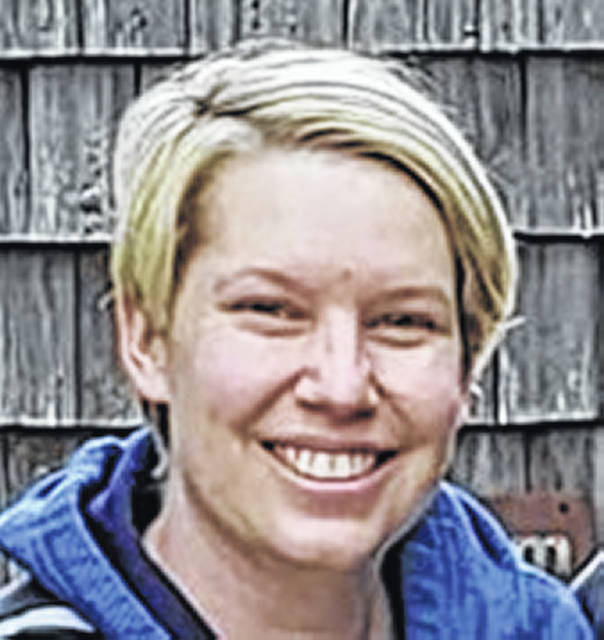
One of the ongoing themes in Paul’s various letters to the churches throughout Asia and Europe is this idea that Christians ought to live in community with one another.
If you read Romans, Galatians, Philippians, I Thessalonians, and the letters to the Corinthians, one of the things that Paul mentions repeatedly is the importance of leaning upon one another.
Paul tells us that life is not something that people were created to do alone — especially if one is trying to live life as a follower of Jesus. In the face of struggle, persecution, and suffering, Paul says that having shoulders to lean on for mutual encouragement is essential.
Among Paul’s more popular rallying cries for being faithfully present with one another are the words from Galatians: “Bear one another’s burdens, and in this way you will fulfill the law of Christ”, and from I Thessalonians: “Therefore encourage one another and build up each other, as indeed you are doing.”
Given what we know about the cultures of the people to whom Paul was writing, these words wouldn’t have been a surprise to them.
In this time period, folks were very community-oriented. Collectiveness made the world go ‘round. Generally speaking, ancient people found their identity not in who they were as individuals, but in who the greater community that they were a part of were. They relied and depended upon one another for everything from food to entertainment.
So for these folks, commands to bear each other’s burdens and to build one another up would have simply been a more Christ-like extension of what they already knew.
We, however, are quite the opposite. The definition of community has drastically changed since the days of Paul.
We are very individualistic people. We are shielded, and we are careful about how involved we get in the world around us. We don’t need the help of those around us — we can support ourselves, thank you very much!
We also don’t like to get too invested in the people who we meet from day to day, and we hide from our neighbors when they knock on the door. Or maybe that’s just me. But either way, it’s easy to see what I’m trying to say. We don’t “do” community in the same way that the people of the early Church did.
We refer to ourselves as independent, rather than interdependent. We are perfectly happy with calling our mothers once a week and visiting a friend on occasion, and labeling that as community.
I wouldn’t go so far as to say that Paul’s admonitions for encouragement and mutual love surprise us, but I do think that based upon how we understand community, we find them to be unusual.
It is hard for many of us to imagine going to church and instead of saying, “Fine,” when someone asks how we are doing, telling them that our marriage is falling apart, or that our kids are pushing our buttons.
Having never been part of a faith tradition where we publicly confess our sins to one another, I can’t fathom the idea of asking Mildred the organist to pray about my resentment towards my sister’s ex-husband — nor do I think that many of us would be comfortable doing that. We don’t get too invested. We dare not allow ourselves to admit that we need each other.
So often, we aren’t fully honest with our church family, we don’t let them get too close, and we don’t allow ourselves to become too vulnerable. Perhaps we don’t outright lie, but we certainly don’t tell the truth. We hold pieces of ourselves back.
And y’all, I’m tired of this game we play where we talk up community, but we don’t want to be fully immersed in one. I’m tired of not being entirely honest. I’m tired of us telling each other that interdependence and being a part of something bigger than ourselves is not ideal.
I’m tired of living in a world where bearing each other’s burdens is OK, as long as the burden isn’t too heavy. I’m tired of hiding my humanness and my vulnerability.
And maybe you are, too. All of which begs the bigger question: What would the Church — and our world — look like if we actually told the truth?
So I’d like to challenge everybody to take Paul’s guidance for how communities should live seriously. I’d like to challenge everybody to get vulnerable, to get social, and to tell the truth.
Take the time to get coffee with a friend you haven’t seen in a while. Say hello to a stranger on the street. Call your mother twice a week instead of once a week. Welcome that new person at church, and do it earnestly. Invite a person who you don’t know very well out to lunch.
Don’t be afraid to tell someone that you are having a hard time, and if you are on the receiving end of that conversation, take the time to listen. Make that person feel heard.
Pray for one another’s sins out of love, and ask for prayers for your own.
Let us begin the process of paving the way for deeper and more meaningful communities — both in church, and all around us.
They’ll know we are Christians by our love.
Hannah Mullikin Lutz is Pastor at Ada Chapel Friends Meeting in Wilmington.


